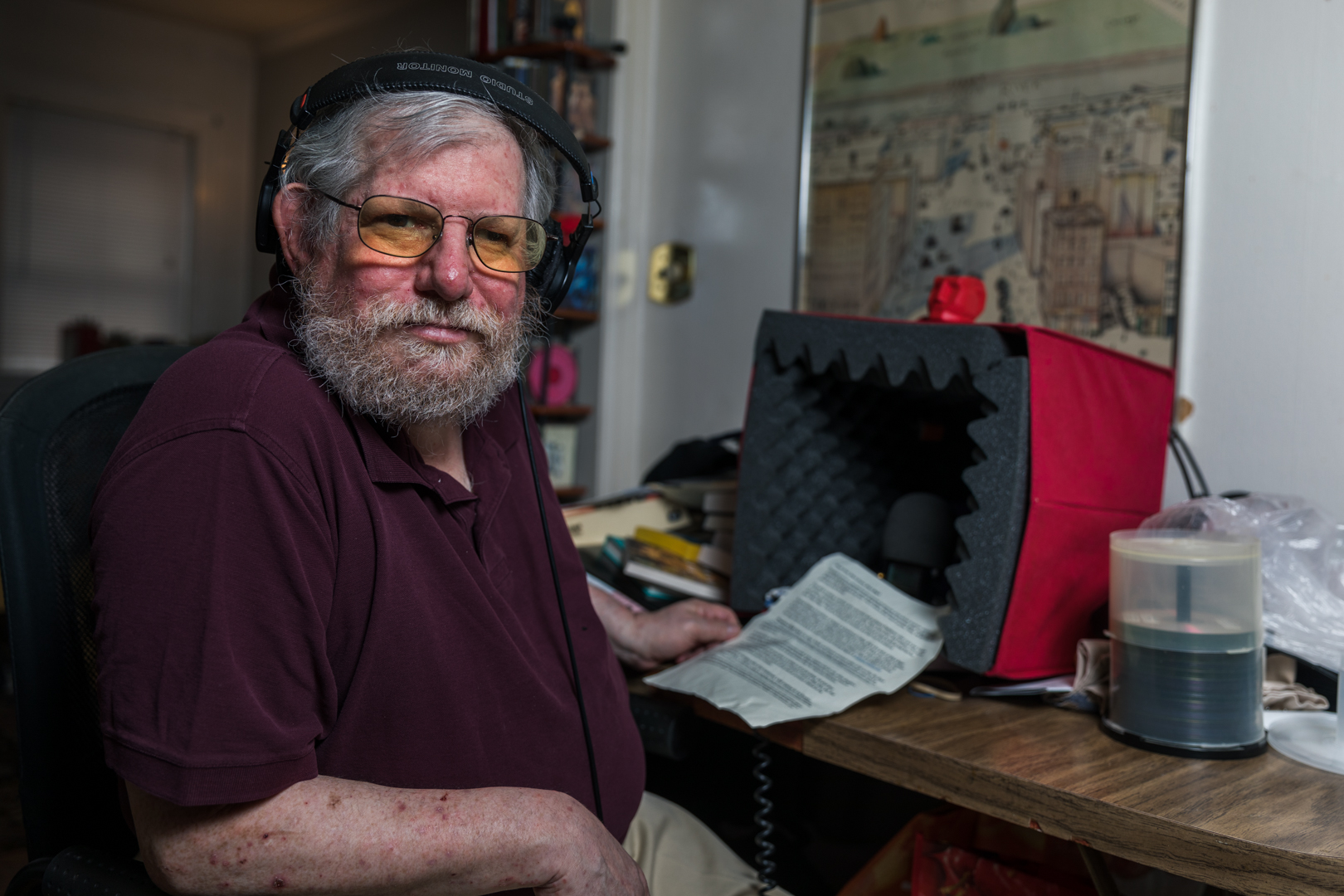Live from Atlantic Avenue: It’s sci-fi radio
For nearly 50 years, Jim Freund has hosted a two-hour radio show in the wee hours of Thursday morning.

Jim Freund in his home studio. Eagle photo by Paul Frangipane
Every Thursday morning, between 1 and 3 a.m., science fiction and fantasy talk show “Hour of the Wolf” goes on air from 99.5 WBAI FM on Atlantic Avenue — as it has nearly every week since 1972.
The show is partly based on storytelling, with emerging and established authors of the genre reading from their works, but what keeps its long-term listeners coming back every week is the two-hour freeform conversation with the show’s spirited host, Jim Freund.
Freund, a 65-year-old Queens native long settled in Brooklyn, has hosted the show for almost half a century. He began in 1974, playing co-host to the author, radio journalist and Wiccan priestess Margot Adler who had created the show.
